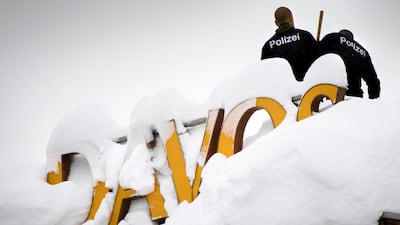The Swiss alpine village of Davos will once again welcome the world's political and business elite when the World Economic Forum (WEF) annual meeting begins tomorrow. This year the event's stated aim is weighty: "creating a shared future in a fractured world". It will welcome more than 3,000 participants from 110 countries, including 70 heads of state and government and some 1,900 business leaders. The mood is one of cooperation, rooted in the alignment of national and international interests. In keeping with this aim, the agenda includes such crucial issues as sustainable development, climate change and worsening social divisions. It will also address the fourth industrial revolution, which will see technology change the ways we live and work. The recognition of a fractured world is welcome. This year, leaders beleaguered by rising nationalism – such as German chancellor Angela Merkel and British prime minister Theresa May – will attend the conference alongside those who have benefited directly from it. Indeed, speeches by Narendra Modi and Donald Trump will bookend the forum.
Nevertheless, this is a chance to choose international cooperation in the face of protectionism. And while events like this often attract criticism for their broad abstract discussion, Davos can bring about tangible change. Last year’s forum heralded a coalition to respond quickly to epidemics like Zika or Ebola by preparing and creating vaccines. In addition, a fund backed by the Norwegian government was launched to raise $400 million and protect five million hectares of the world’s rainforest. This year’s emphasis on technology – with discussion of cyber security and artificial intelligence – is very welcome in a rapidly changing world.
Courageous leadership is vital today, not least in the Middle East where old and new rivalries have flared recently. Davos will welcome a record number of attendees from this region at this meeting. Eight heads of state or government from the Arab world will join more than 200 Middle Eastern delegates – a rise of 30 per cent since 2016. As a result, Arab countries will have an opportunity to proffer their global perspective. The UAE is in a good position to set the tone of discussion at the forum following a WEF report released this month, which places the country in the top quartile of countries for technology and innovation. The task awaiting delegates at Davos this year is arduous – but tangible progress is conceivable. Participants agree that a prosperous future is one that emphasises global cooperation. On the dawn of the fourth industrial revolution, there is reason to hope that an international shared agenda will prevail in the Swiss Alps.

